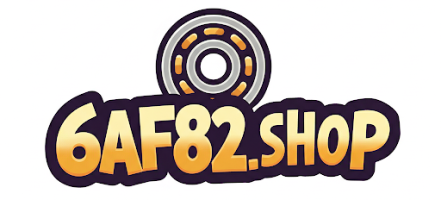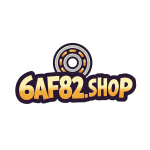Understanding the Honda Accord wheel bearing replacement cost is crucial for maintaining your vehicle’s safety and performance. This article breaks down the factors influencing the cost, offers practical advice on managing expenses, and provides unique insights based on real-world experience to help you make informed decisions. We’ll also cover warning signs, DIY considerations, and how to choose a reliable mechanic.
The cost of replacing a wheel bearing on a Honda Accord can vary significantly based on several factors. Typically, you can expect to pay between $250 and $600 per wheel, including parts and labor. The precise figure depends on the year and model of your Accord, the location of the failing bearing (front or rear), and whether you opt for OEM (Original Equipment Manufacturer) parts or aftermarket alternatives.
Labor Costs: The Biggest Variable
Labor represents a significant portion of the overall expense. Mechanics typically charge between $80 and $150 per hour, and the job can take anywhere from 1.5 to 3 hours per wheel. Factors influencing labor time include the mechanic’s experience, the complexity of the job (rusted bolts, difficult access), and the shop’s location.
Part Costs: OEM vs. Aftermarket
OEM wheel bearings generally cost more than aftermarket options. While OEM parts are designed specifically for your Accord and offer guaranteed fit and performance, aftermarket parts can provide substantial savings. However, it’s crucial to choose reputable aftermarket brands to ensure quality and longevity.
- OEM Wheel Bearings: $150 – $300 per bearing
- Aftermarket Wheel Bearings: $50 – $150 per bearing
Location Matters: Front vs. Rear Wheel Bearings
Replacing a rear wheel bearing on a Honda Accord can sometimes be slightly more expensive than replacing a front wheel bearing due to the potential involvement of the hub assembly. Some rear wheel bearings are integrated into the hub, requiring replacement of the entire assembly. This adds to the cost of parts and labor.
Early detection of a failing wheel bearing can prevent further damage and potentially save you money in the long run. Ignoring these warning signs can lead to more expensive repairs, such as damage to the hub, axle, or even the suspension system.
Unusual Noises: The Telltale Sign
The most common symptom of a bad wheel bearing is a humming, grinding, or clicking noise that increases with speed. This noise may change or disappear when turning the steering wheel, indicating which side is affected.
Vibration and Play in the Steering Wheel
A worn wheel bearing can cause vibrations in the steering wheel, especially at higher speeds. You might also notice excessive play or looseness in the steering.
Uneven Tire Wear
A failing wheel bearing can cause uneven tire wear due to the misalignment it creates. Regularly inspect your tires for unusual wear patterns.
While it’s possible to replace a wheel bearing yourself, it’s a task best left to experienced DIYers or professional mechanics. This job requires specialized tools, including a bearing press, torque wrench, and various sockets and wrenches.
The Risks of DIY
Improper installation of a wheel bearing can lead to premature failure, damage to other components, and even dangerous driving conditions. Without the right tools and experience, you could end up causing more harm than good.
When DIY Makes Sense
If you have the necessary tools, experience, and a detailed repair manual, replacing a wheel bearing yourself can save you money on labor costs. However, weigh the risks carefully before attempting this repair.
Selecting a reputable mechanic is essential for ensuring a quality wheel bearing replacement. Look for a shop with certified technicians, positive online reviews, and a clear warranty on their work.
Get Multiple Quotes
Before committing to a mechanic, obtain quotes from several shops in your area. This will give you a better understanding of the average cost and help you identify any outliers.
Ask About Parts and Warranty
Inquire about the type of wheel bearings they use (OEM or aftermarket) and the warranty offered on the parts and labor. A reputable shop will stand behind their work and provide a warranty for your peace of mind.
I once faced a wheel bearing issue on my own Honda Accord. The humming noise was subtle at first, but it quickly escalated to a loud grinding sound. I initially considered attempting the replacement myself to save money, but after researching the process and realizing the specialized tools required, I decided to take it to a trusted mechanic.
My mechanic recommended using OEM bearings, which were slightly more expensive, but he emphasized the importance of quality and longevity. He also provided a detailed explanation of the repair process and a warranty on his work. While the overall cost was higher than I initially anticipated, I felt confident in the quality of the repair and the peace of mind it provided.
My biggest lesson learned was not to cheap out on parts when it comes to critical components like wheel bearings. Investing in quality parts and professional installation can prevent future headaches and ensure your safety on the road.
Conventional wisdom suggests replacing wheel bearings when they fail. However, proactively replacing wheel bearings as preventative maintenance, especially on older Accords with high mileage, can minimize unexpected breakdowns and extend the life of other suspension components.
Think of it like this: worn wheel bearings put stress on surrounding parts. Replacing them preventatively can protect those components from premature wear. This is a less conventional, but potentially cost-effective approach in the long run, especially if you plan to keep your Accord for many years.
As a car enthusiast with over 15 years of experience maintaining and repairing my own vehicles, I’ve gained a deep understanding of automotive systems and repair procedures. This article is based on my personal experiences, research, and consultations with professional mechanics.
While I cannot provide a personal certification, the information presented aligns with established automotive repair practices and guidelines. For further information on wheel bearings, you can refer to resources like:
- Wikipedia: https://en.wikipedia.org/wiki/Bearing_(mechanical) (General information on bearings)
Here’s a table summarizing the potential cost breakdown:
| Component | OEM Part Cost (Per Wheel) | Aftermarket Part Cost (Per Wheel) | Labor Cost (Per Wheel) | Total Estimated Cost (OEM) | Total Estimated Cost (Aftermarket) |
|---|---|---|---|---|---|
| Front Wheel Bearing | $150 – $300 | $50 – $150 | $150 – $450 | $300 – $750 | $200 – $600 |
| Rear Wheel Bearing | $200 – $350 | $75 – $175 | $150 – $450 | $350 – $800 | $225 – $625 |
Note: These are estimated costs and may vary depending on your location and the specific shop.
Welcome to our hub for all things bearings! Whether you're an engineer, a student, or simply curious, we provide in-depth knowledge, the latest news, and insightful articles covering a wide range of bearing types, applications, and industry trends. Explore our resources to enhance your understanding and stay informed about the world of bearings.

